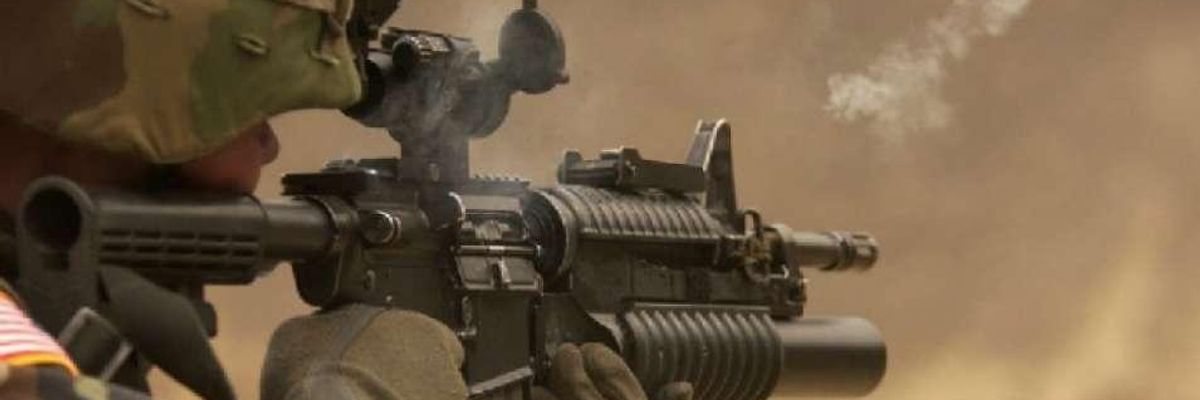Despite the fact that the global gross domestic product fell by nearly 5 percent because of the COVID-19 pandemic, military spending worldwide increased by almost 3 percent, according to the Stockholm International Peace Research Institute.
SIPRI's annual assessment released on Monday once again found the United States to be the world's biggest spender, accounting for nearly 40 percent of overall expenditures. U.S. military spending in 2020 increased by 4.4 percent from 2019.
"The recent increases in U.S. military spending can be primarily attributed to heavy investment in research and development, and several long-term projects such as modernizing the U.S. nuclear arsenal and large-scale arms procurement," said SIPRI's Alexandra Marksteiner, a researcher with its Arms and Military Expenditure Program. "This reflects growing concerns over perceived threats from strategic competitors such as China and Russia, as well as the Trump administration's drive to bolster what it saw as a depleted U.S. military."
Marksteiner's statement is illustrative of the flimsy arguments used in Washington to justify increasing the U.S. defense budget.
For one thing, the modernization of the U.S. nuclear arsenal does not have to come anywhere close to the proposed $1.3 trillion over the next 30 years. Part of that plan involves spending nearly $300 billion on nuclear armed missiles, or ICBMs, that we don't even need (and may even make nuclear war more likely).
And these "perceived threats" that Marksteiner refers to are just that: perceived--perceived by those who have an interest in creating threats and then selling weapons to counter them with.
